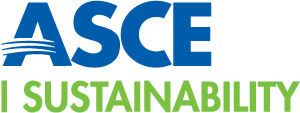
Climate Resilience in Engineering Practice: ASCE-NOAA Task Force
The ASCE and the National Oceanic and Atmospheric Administration (NOAA) joined into a formal agreement to accelerate the development of climate-smart engineering codes and standards.
This cooperation between ASCE, the world’s largest civil engineering professional society, and NOAA, the nation’s largest provider of climate information, seeks to help the nation account for extreme events in future infrastructure design and construction. The ASCE-NOAA Task Force on Climate Resilience in Engineering Practice (ASCE-NOAA Task Force) develops and coordinates activities as part of this engagement.
ASCE-NOAA Summer 2025 Workshop
Ongoing ASCE-NOAA Collaboration
ASCE-NOAA Task Force
This coordination body holds a meeting every other month to include relevant briefings from various Federal programs, key ASCE committees, and third parties that can provide information and resources to support the effort to improve climate resilience through climate informed civil engineering practice. While the participation in the ASCE-NOAA Task Force is by invitation, people can sign up for the bimonthly newsletter. The newsletter not only summarizes upcoming and past presentations but also has articles and news links for practicing engineers and other resilience practitioners. Further people can view recorded presentations at the ASCE-NOAA Taskforce YouTube Channel.
- Full YouTube Channel (or scan the QR code on the right)

- ASCE-NOAA Workshop 2022: ASCE-NOAA Workshops on Leveraging Earth System Science and Modeling to Inform Civil Engineering Design
- ASCE-NOAA Workshop 2024: Climate Risk Reduction: Hazards and Processes for Operationalizing Climate Information into ASCE Standards and Manuals of Practice
- ASCE-NOAA Workshop 2024 Video Playlist
NOAA’s Industry Proving Ground
The National Oceanic and Atmospheric Administration’s (NOAA) Industry Proving Grounds (IPG) connects major U.S. industries with NOAA products, services, and actionable extreme weather and climate data to better assess risks and opportunities. The IPG initiative focuses on three major sectors: architecture and engineering, reinsurance and insurance, and retail. The IPG program is accelerating climate-smart infrastructure standards that increase resilience nationwide. Working with the American Society of Civil Engineers (ASCE) and the American Institute of Architects (AIA), IPG provides data to help industry leaders account for climate factors in infrastructure design and construction, ensuring safety and productivity in harmony with environmental goals. This collaboration focuses on developing climate information products that offer foresight into future environmental conditions for resilient structures.


